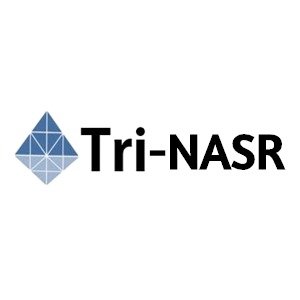Best Fintech Lawyers in Ikeja
Share your needs with us, get contacted by law firms.
Free. Takes 2 min.
List of the best lawyers in Ikeja, Nigeria
About Fintech Law in Ikeja, Nigeria
Fintech, short for financial technology, is a rapidly growing sector in Ikeja, Nigeria. It encompasses innovative solutions that use technology to enhance and transform financial services. Fintech in Ikeja plays a pivotal role in areas such as mobile payments, peer-to-peer lending, digital currencies, and crowdfunding. As the Fintech industry continues to expand, it is important to understand the legal framework and regulations that govern it to ensure compliance and protect your interests.
Why You May Need a Lawyer
There are various situations in which you may need legal advice in the field of Fintech. Some common scenarios include:
- Starting a Fintech company: Setting up a Fintech business requires navigating through legal requirements, such as licensing, registration, and compliance with relevant regulations.
- Privacy and data protection: Fintech often involves the collection, storage, and processing of sensitive financial data. A lawyer can advise you on how to comply with data protection laws, safeguard customer information, and handle data breaches.
- Intellectual property protection: If your Fintech innovation involves unique software, algorithms, or designs, a lawyer can help protect your intellectual property through patents, trademarks, or copyrights.
- Contractual agreements: Negotiating and drafting legal contracts and agreements is crucial in Fintech, whether it's with partners, customers, or investors. A lawyer can ensure that these agreements protect your rights and interests.
- Regulatory compliance: Fintech is subject to various regulations and compliance requirements. To stay on the right side of the law, it's essential to seek legal advice to understand and comply with these obligations.
Local Laws Overview
It is important to be aware of key local laws governing Fintech in Ikeja, Nigeria. Some of the important aspects include:
- Central Bank of Nigeria Act: The Central Bank of Nigeria plays a significant role in regulating financial activities, including Fintech. Familiarize yourself with provisions related to licensing, authorization, and reporting requirements.
- Payment Systems Management Act: This act establishes the legal framework for payment systems in Nigeria. It covers areas such as electronic funds transfer, digital payments, and issues related to consumer protection.
- Data Protection Regulation: Understanding Nigeria's Data Protection Regulation is crucial for any Fintech business handling customer data. Compliance with data protection principles and obtaining necessary consent are important obligations.
- Securities and Exchange Commission (SEC) Regulations: If your Fintech venture involves activities related to securities, it is important to be aware of the regulations enforced by the SEC. This includes crowdfunding, digital assets, and other aspects related to capital raising.
Frequently Asked Questions
1. Is a license required to operate a Fintech business in Ikeja, Nigeria?
Yes, Fintech businesses in Ikeja often require obtaining relevant licenses or authorizations, depending on the nature of their activities. It is important to consult a lawyer to determine the licenses and permits needed for your specific Fintech venture.
2. What are the risks involved in collecting and storing customer data?
Collecting and storing customer data brings the risk of data breaches and unauthorized access. Fintech businesses must adhere to data protection regulations, implement adequate security measures, and have protocols in place to respond to any data breach incidents.
3. What legal considerations should I keep in mind while developing Fintech software?
When developing Fintech software, it is important to ensure that you respect intellectual property rights and avoid infringing on existing patents or copyrights. Additionally, understanding and complying with open-source licensing requirements is crucial.
4. How can I protect my Fintech business from fraud or cyberattacks?
To protect your Fintech business from fraud or cyberattacks, it is essential to implement robust security measures. This may include two-factor authentication, encryption of sensitive data, as well as regular security audits and employee training.
5. Can a foreign entity invest in the Fintech sector in Ikeja, Nigeria?
Yes, foreign entities can invest in the Fintech sector in Ikeja, Nigeria. However, it is important to comply with relevant foreign investment regulations and seek legal advice to ensure compliance with any additional requirements.
Additional Resources
Here are some additional resources that can be helpful for obtaining legal advice and understanding the Fintech landscape in Ikeja, Nigeria:
- Nigeria Fintech Association: A non-profit organization that provides information, support, and advocacy for the Nigerian Fintech ecosystem. They can guide you to relevant legal resources and experts.
- Central Bank of Nigeria (CBN) website: The CBN website provides regulatory updates and information on licensing requirements for Fintech companies.
- Securities and Exchange Commission (SEC) Nigeria: The SEC Nigeria website offers resources and updates related to regulations and compliance in the Fintech sector.
Next Steps
If you require legal assistance in the field of Fintech in Ikeja, Nigeria, here are some recommended next steps:
- Research local law firms or lawyers with expertise in Fintech and regulatory matters.
- Prepare a list of questions or concerns you have regarding your Fintech venture.
- Contact the selected law firm or lawyer to schedule an initial consultation.
- During the consultation, discuss your specific needs, understand their fees and services, and evaluate their expertise.
- Based on the consultation, decide whether to proceed with the chosen firm or lawyer and follow their guidance for further legal assistance.
Lawzana helps you find the best lawyers and law firms in Ikeja through a curated and pre-screened list of qualified legal professionals. Our platform offers rankings and detailed profiles of attorneys and law firms, allowing you to compare based on practice areas, including Fintech, experience, and client feedback.
Each profile includes a description of the firm's areas of practice, client reviews, team members and partners, year of establishment, spoken languages, office locations, contact information, social media presence, and any published articles or resources. Most firms on our platform speak English and are experienced in both local and international legal matters.
Get a quote from top-rated law firms in Ikeja, Nigeria — quickly, securely, and without unnecessary hassle.
Disclaimer:
The information provided on this page is for general informational purposes only and does not constitute legal advice. While we strive to ensure the accuracy and relevance of the content, legal information may change over time, and interpretations of the law can vary. You should always consult with a qualified legal professional for advice specific to your situation.
We disclaim all liability for actions taken or not taken based on the content of this page. If you believe any information is incorrect or outdated, please contact us, and we will review and update it where appropriate.










